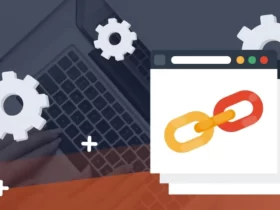Search engine optimization is an essential part of any website. Some essential SEO tips are the ones that aren’t always immediately obvious. These tips cover topics like page titles and metadata and some of the most basic techniques, like heading tags and page titles.
The best SEO strategy for any website is based on technical, on-page, and off-page factors. The right combination of all three factors will make your site SEO-friendly. Listed below are some crucial tips to improve your rankings and help you with SEO for contractors. You can apply these to any website to improve its visibility and higher rankings in Google search results. The best SEO services will help you get the best result possible, so hire responsibly!
10 Most Important SEO Tips
1. Relevance
The most important ranking factor is relevance. A query is what a user types into a search engine, and relevance is what gives a page a high ranking. Quality content answers queries and provides valuable information for the user. In the case of Google, unique, original content is essential. It also must be better than competing websites. There are also many other ranking factors.
2. Focus on Metadata
Metadata helps search engines understand the content on your web pages and improve organic click-through rates. The meta-information on your website is an integral part of your site’s search engine optimization strategy. When people click through your ad to your content, you increase your organic click-through rate. This will, in turn, increase your ranking.
Metadata is the information that tells search engines how to categorize a page and its content. It also helps users locate and access relevant content. Modern descriptive metadata records critical information and user-added details. It helps to provide relevant and valuable information to users. Savvy marketers track how users use documents and connect that usage information with other content.

3. Put image tags
You should add the correct tags to your images. Image tags are essential because they tell search engines what kind of image you have. Google images have gotten more complex and use meta tags to differentiate different images. A description of your image can help visually impaired users access the content on your page. Using the correct tags is vital to your site’s SEO.
4. Page titles are important
While it may not seem like a crucial aspect of SEO, page titles are vital to ranking well in search results. Whether click-through rates influence a page’s ranking is an ongoing debate in the SEO industry. Whatever the case, optimizing page titles will help encourage more website traffic. Google uses hundreds of signs to rank sites in search results, and the keywords in the title will have the most impact.
The titles are often used in pre-fill messaging on bookmarks and browsers. Major social media platforms, such as Facebook and Twitter, allow users to specify the page’s title and description, which can be a powerful ranking signal.
5. Have heading tags
Heading tags are an essential part of the website content, as they identify what sections are relevant to the search engine. Without these tags, your article can appear as one long paragraph, and your readers will have to read it all. Heading tags make your article easier to read and distinguish from similar content on other sites. If you’re trying to get your site listed on search engines, heading tags will be helpful. But there are more than just SEO benefits to using them.
It would be best if you used a single H1 tag per article. You should avoid putting more than one h1 on the same page, as doing so will confuse both users and search engines. It’s also best to use a single H1 tag for each section of an article. In addition, use headings appropriately. The H1 tag is used for the article’s main body, while the H2 and H3 tags are used to break up the content.
Headings in HTML allow you to use your focus keyword prominently. Putting your key phrase in subheadings further emphasizes the importance of your key phrase. If you want your articles to rank well for a keyword, you have to write about it. It’s vital that you don’t give away the entire subject of your article with a header tag. Instead, a reasonable heading tag explains the section and encourages the reader to read on.
6. Create internal links
The main goal of internal linking is to drive people to specific pages or areas of your website. Using exact match keywords on all of your internal links is considered over-optimization. Instead, focus on making the links more helpful to visitors. Using keyword-heavy anchor text will raise a red flag with Google and hurt your SEO. If you use internal links to promote older content, consider updating the articles and reusing the anchor text.
Internal links are super-important for SEO. They help Googlebot and website visitors understand which pages on your website are most important. They help website owners mark pages important to their users and serve a purpose. John recommends that webmasters employ a strategic internal linking strategy and appropriate anchor text.
7. Pay attention to case studies
The best way to create compelling case studies is to show the solution that your product or service can provide. A case study can be as simple as showing someone’s problem and how it was solved. You can’t expect readers to believe in a product or service if you don’t provide proof that it works. Publish case studies regularly to keep your audience interested.
If you’re unsure how to get started, read case studies by renowned SEO experts. Using case studies, you can see how honest businesses have increased their traffic and income. Don’t worry if your business doesn’t have a huge budget – there are many free case studies to check out online. Case studies are crucial to ensuring success, whether you’re trying to boost your website’s rankings or increase customer traffic.
8. Analyzing your competitors
Identifying the most effective keywords for your niche is essential for success. If you focus on only the most popular keywords for your industry, you will find that your analysis will be skewed. Many people are searching for long-tail or local keywords, and if you can rank high for those terms, you can dominate a market. To determine which keywords to target:
- Consider your buyer persona, target audience, and market.
- Distinguish generic sites and big box stores from your list.
- Focus on your actual competitors for your target audience.
9. Look for opportunities
If your competitors have lost their rankings in search, this is an excellent opportunity to capitalize. Google’s organic research tool can help you find these losses. If your competitor isn’t fixing the issues and isn’t making improvements, you can use their situation to improve your site. To achieve these goals, you need a robust SEO tool. For example, you need to know the keywords your competitors used to rank well.
10. Check the best-ranked pages
Another way to analyze your competition is to look at the content of their best-ranked pages. You may be surprised by the content on a competitor’s third page. For example, Home Depot’s third-most-visited page contains no content about building supplies, construction, or wallpaper. As you can see, there’s a lot you can learn from competitor sites. So, start analyzing your competitors and building your SEO strategy around them.
Final Take
Search engine optimization is vital for many reasons, not the least because Google has announced that they will begin ranking sites based on their algorithm. If you want your site or business to rank higher in search results, then SEO should be one of your top priorities!





























